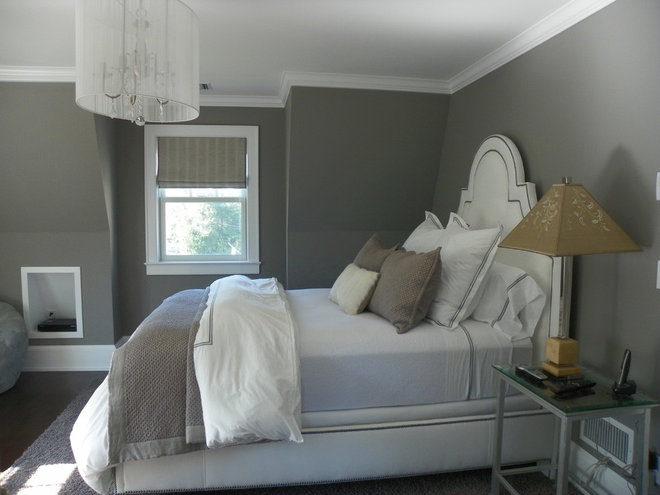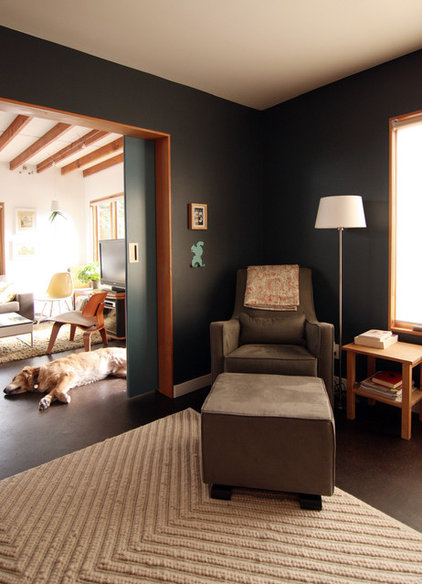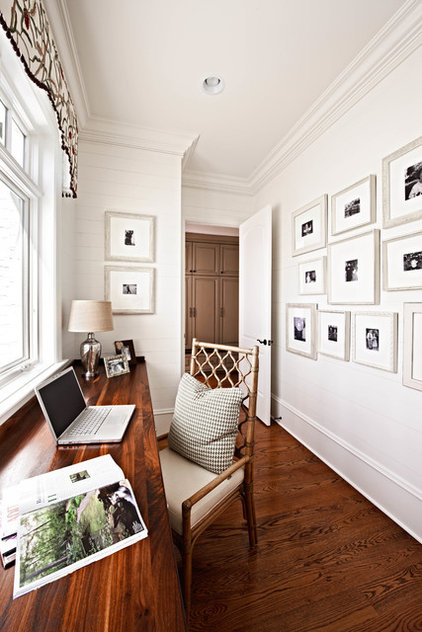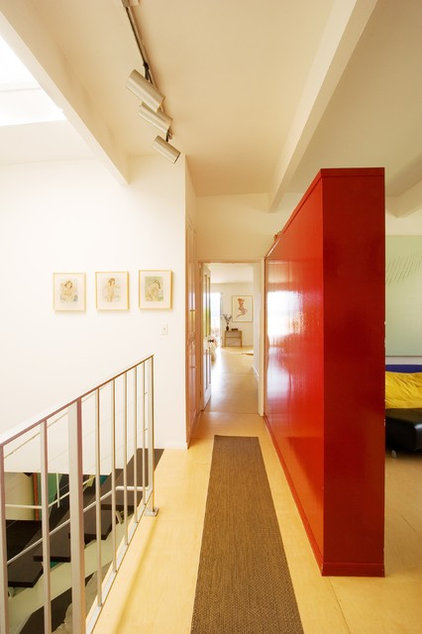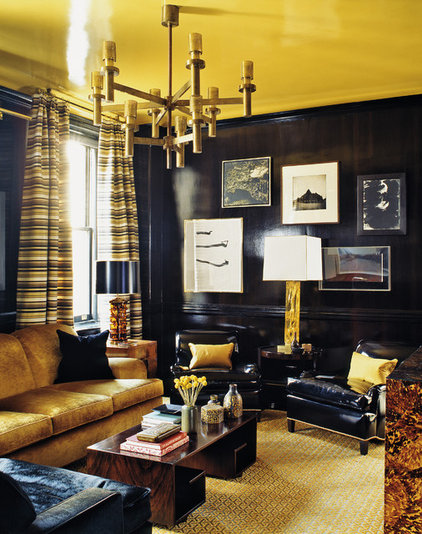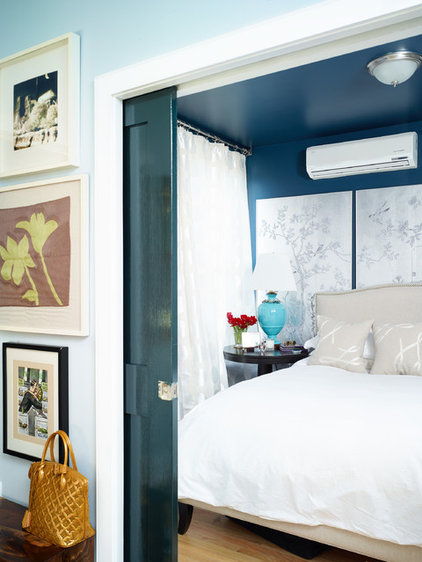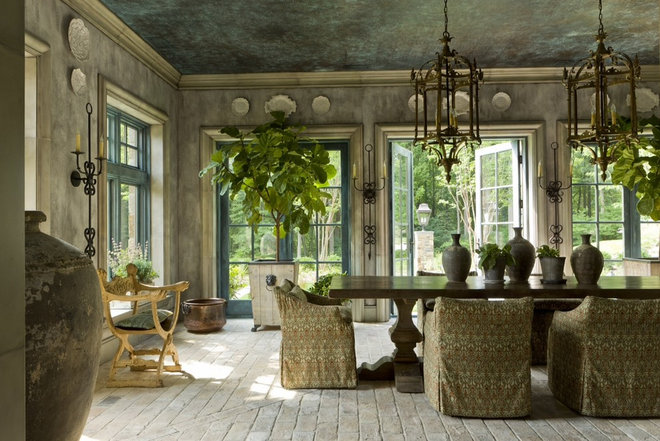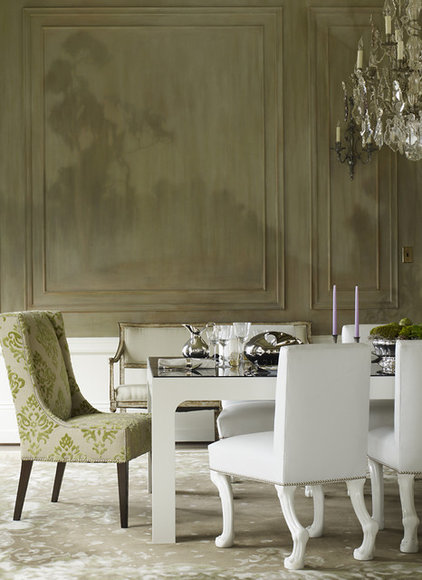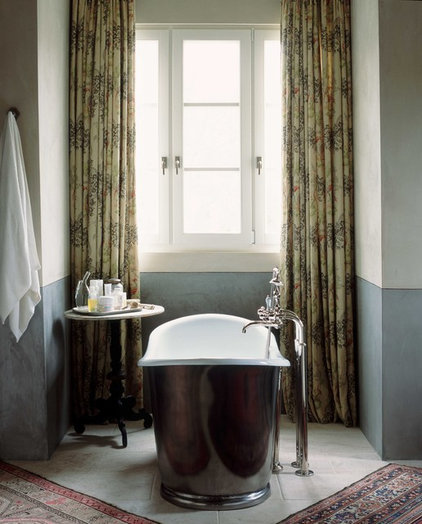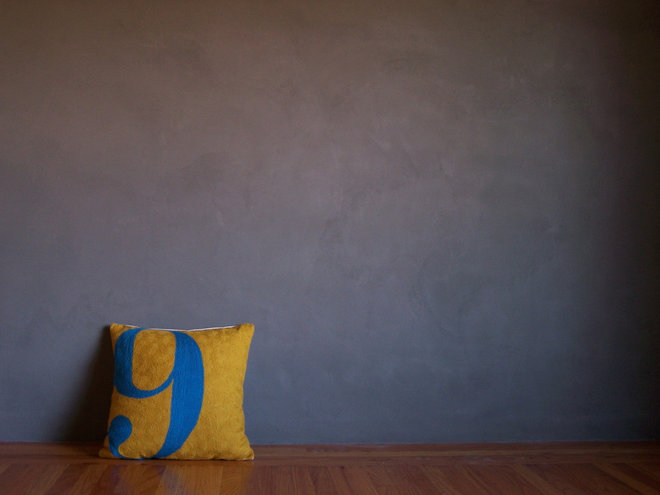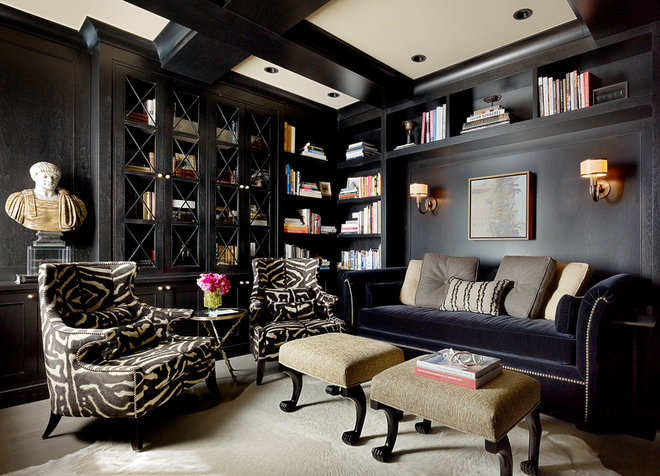Pick the Right Paint Finish to Fit Your Style
|
Paint Finishes
Matte. Not to be confused with flat paint (generally only used on ceilings), paint with a matte finish is velvety and makes colors look especially rich and deep. It is not at all reflective and hides wall imperfections well — but it is hard to clean. A good choice for areas with less traffic — and homes without crayon-wielding children. |
Real-deal lacquer contains toxic ingredients and is no longer used in most places. Instead, a lacquer-like effect can be created using regular paint with a high gloss finish, or with a modern lacquer that combines high gloss paint with water-based varnish.
High gloss paint creates a reflective surface and is highly durable. But be warned — it will show every imperfection in your walls.
During painting, you may need to layer three, four, five or more coats of color to achieve the effect you are looking for. Pros spray rather than brush on the paint for an ultra-slick look.
But if you have your heart set on high gloss living room walls (and ceiling), it's best to hire a pro.
And you can expect it to set you back more than the typical painting job — it will take a great deal more paint, plus extra time to prep and apply.
|
Special Effects
Decorative painting. Looking for something a little different? Consider doing a decorative or faux finish on your walls. From a gorgeous patina that looks like it came straight from an old European hotel, to fun textures and patterns, the only limit is your imagination. For some, this can be a fun DIY experiment; for others, a professional decorative painter may be in your future! Rates vary depending on the intricacy of your paint job, the size (and difficulty) of your space and the experience of the painter — a single project could cost anywhere from a few hundred to thousands of dollars. |
Like other art mediums, mural costs can vary wildly. Depending on the finishes used, a mural may be easily damaged — or quite durable. If you need an easily cleaned surface, it is important to speak with the muralist during the initial planning stages to see if it is feasible.
Originating in Venice in the 1500s, this interior finish is made from slaked lime, marble dust and pigments. It is far more durable than paint and resists cracking.
Prices range from $5 to $15 per square foot. Ceilings and columns will cost more because these are difficult areas to work on.
|
American Clay plaster. This
natural clay and recycled marble dust plaster creates a look that falls
somewhere between southwestern adobe and Venetian plaster — rich, earthy
and highly pigmented. American Clay is nontoxic and durable, and can be
applied over just about any type of substrate. Costs tend to be a bit
lower than Venetian plaster — about $2 to $10 per square foot.
|
|
Stained wood panel walls.
If you have wood paneling rather than sheet rock or plaster, you have
the option to stain, rather than paint, the wood. The appeal of stain is
that the grain of the wood shows through. Wood stain alone will have a
finish akin to matte paint, but you can alter the look by applying a
glaze with a higher sheen on top.
|
